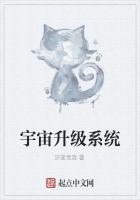'IREN. Because the commodity doth not countervail the discommodity; for the inconveniences which thereby do arise are much more many; for it is a fit house for an outlaw, a meet bed for a rebel, and an apt cloak for a thief. First, the outlaw being, for his many crimes and villanies, banished from the towns and houses of honest men, and wandering in waste places, far from danger of law, maketh his mantle his house, and under it covereth himself from the wrath of Heaven, from the offence of the earth, and from the sight of men. When it raineth, it is his penthouse;when it bloweth, it is his tent; when it freezeth, it is his tabernacle. In summer he can wear it loose; in winter he can wrap it close; at all times he can use it; never heavy, never cumbersome. Likewise for a rebel it is as serviceable; for in this war that he maketh (if at least it deserves the name of war), when he still flieth from his foe, and lurketh in the THICKWOODS (this should be BLACK BOGS) and straight passages, waiting for advantages, it is his bed, yea, and almost his household stuff.']
To look at me, you would hardly think 'Poor Thady' was the father of Attorney Quirk; he is a high gentleman, and never minds what poor Thady says, and having better than fifteen hundred a year, landed estate, looks down upon honest Thady; but I wash my hands of his doings, and as I have lived so will I die, true and loyal to the family. The family of the Rackrents is, I am proud to say, one of the most ancient in the kingdom. Everybody knows this is not the old family name, which was O'Shaughlin, related to the kings of Ireland--but that was before my time. My grandfather was driver to the great Sir Patrick O'Shaughlin, and I heard him, when I was a boy, telling how the Castle Rackrent estate came to Sir Patrick; Sir Tallyhoo Rackrent was cousin-german to him, and had a fine estate of his own, only never a gate upon it, it being his maxim that a car was the best gate.
Poor gentleman! he lost a fine hunter and his life, at last, by it, all in one day's hunt. But I ought to bless that day, for the estate came straight into THE family, upon one condition, which Sir Patrick O'Shaughlin at the time took sadly to heart, they say, but thought better of it afterwards, seeing how large a stake depended upon it: that he should, by Act of Parliament, take and bear the surname and arms of Rackrent.
Now it was that the world was to see what was IN Sir Patrick. On coming into the estate he gave the finest entertainment ever was heard of in the country; not a man could stand after supper but Sir Patrick himself who could sit out the best man in Ireland, let alone the three kingdoms itself [See GLOSSARY 2]. He had his house, from one year's end to another, as full of company as ever it could hold, and fuller; for rather than be left out of the parties at Castle Rackrent, many gentlemen, and those men of the first consequence and landed estates in the country--such as the O'Neills of Ballynagrotty, and the Moneygawls of Mount Juliet's Town, and O'Shannons of New Town Tullyhog--made it their choice, often and often, when there was no room to be had for love nor money, in long winter nights, to sleep in the chicken-house, which Sir Patrick had fitted up for the purpose of accommodating his friends and the public in general, who honoured him with their company unexpectedly at Castle Rackrent; and this went on Ican't tell you how long. The whole country rang with his praises!--long life to him! I'm sure I love to look upon his picture, now opposite to me; though I never saw him, he must have been a portly gentleman--his neck something short, and remarkable for the largest pimple on his nose, which, by his particular desire, is still extant in his picture, said to be a striking likeness, though taken when young. He is said also to be the inventor of raspberry whisky, which is very likely, as nobody has ever appeared to dispute it with him, and as there still exists a broken punch-bowl at Castle Rackrent, in the garret, with an inscription to that effect--a great curiosity. A few days before his death he was very merry; it being his honour's birthday, he called my grandfather in--God bless him!--to drink the company's health, and filled a bumper himself, but could not carry it to his head, on account of the great shake in his hand; on this he cast his joke, saying, 'What would my poor father say to me if he was to pop out of the grave, and see me now? I remember when Iwas a little boy, the first bumper of claret he gave me after dinner, how he praised me for carrying it so steady to my mouth.
Here's my thanks to him--a bumper toast.' Then he fell to singing the favourite song he learned from his father--for the last time, poor gentleman--he sung it that night as loud and as hearty as ever, with a chorus:
He that goes to bed, and goes to bed sober, Falls as the leaves do, falls as the leaves do, and dies in October;'But he that goes to bed, and goes to bed mellow, Lives as he ought to do, lives as he ought to do, and dies an honest fellow.
Sir Patrick died that night: just as the company rose to drink his health with three cheers, he fell down in a sort of fit, and was carried off; they sat it out, and were surprised, on inquiry in the morning, to find that it was all over with poor Sir Patrick. Never did any gentleman live and die more beloved in the country by rich and poor. His funeral was such a one as was never known before or since in the county! All the gentlemen in the three counties were at it; far and near, how they flocked!















